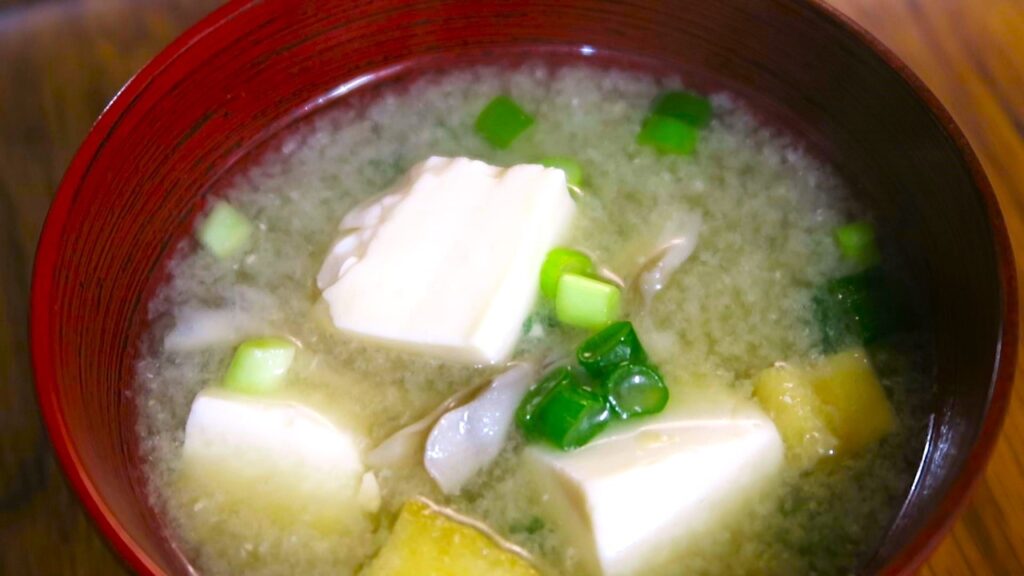
What is Miso Soup?
Miso soup (味噌汁) is a traditional Japanese soup made from miso paste, a fermented soybean paste that is a staple in Japanese cuisine. It is a simple and comforting soup that is typically served as a side dish or starter in Japanese meals. Miso soup is beloved in Japan and is also appreciated by people around the world for its delicious umami flavor and nutritional benefits.
The basic ingredients of miso soup include:
- Miso Paste: The key component of miso soup is the miso paste itself. Miso is made from fermented soybeans, along with other grains like rice or barley, salt, and sometimes other ingredients like koji (a type of mold). The fermentation process can last from several months to years, resulting in a paste with a range of flavors from sweet and mild to rich and intense.
- Dashi: Dashi is a traditional Japanese broth made from simmering ingredients like kombu (dried kelp) and bonito flakes (dried fish flakes). It serves as the base of the soup and provides a savory umami flavor.
- Additional Ingredients: While the miso paste and dashi form the basic soup, miso soup is often customized with various ingredients. Common additions include diced tofu, wakame seaweed, thinly sliced scallions, and sometimes vegetables like mushrooms or daikon radish.
The preparation of miso soup is relatively quick and straightforward:
- Dashi is prepared by simmering kombu and bonito flakes in water, then straining the broth to remove any solid ingredients.
- The miso paste is dissolved in a small amount of dashi to ensure it mixes evenly and doesn’t form clumps when added to the soup.
- The remaining dashi is brought to a gentle simmer, and the dissolved miso paste is added, stirring to combine.
- Additional ingredients, such as tofu and seaweed, are added to the soup and allowed to cook briefly until they are heated through.
- The soup is then served hot, garnished with thinly sliced scallions for added flavor and color.
Miso soup is not only delicious but also nutritious, as miso is a good source of protein, vitamins, and minerals. It is also believed to have various health benefits due to its fermentation process, which produces probiotics and enzymes.
In Japan, miso soup is often enjoyed as part of a traditional breakfast, as well as with lunch and dinner. It is considered a comforting and soul-warming dish that complements a wide range of Japanese dishes.
How to make Miso Soup
Click on the thumbnail or https://youtu.be/dN-VoqRNZ_0 to watch my cooking video.